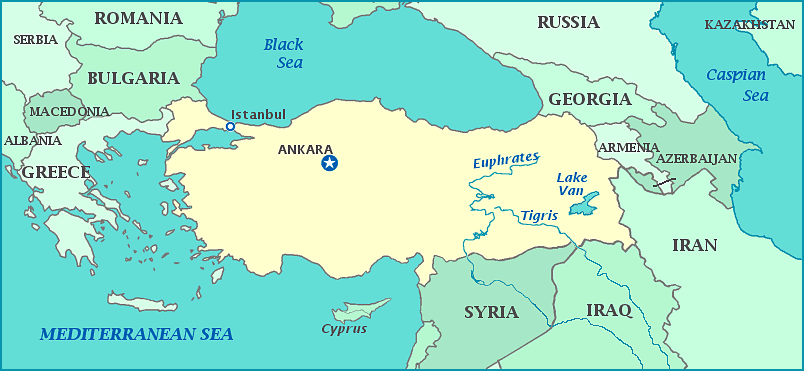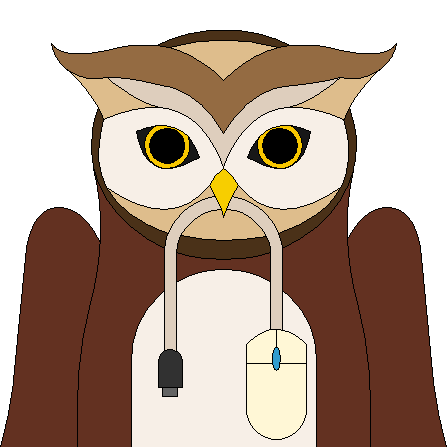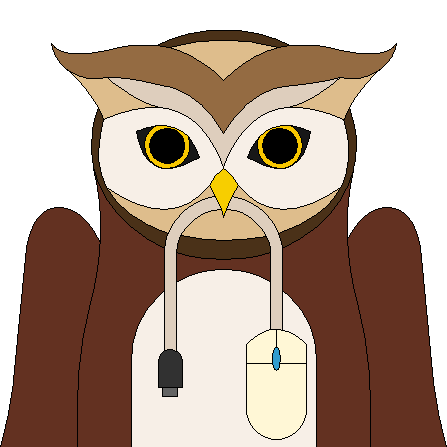
Quill's Quiz - 1100 Question US Mega Geography Quiz
Print this map of Turkey US States and Capitals Map Quiz
Free Maps, Map Puzzles and Educational Software: Owl and Mouse Educational Software
Print this map of Turkey US States and Capitals Map Quiz
Free Maps, Map Puzzles and Educational Software: Owl and Mouse Educational Software
Turkey
The Republic of Turkey, as it is officially called, has long been central to great civilizations, and has been the site of great human evolutionary milestones since the Paleolithic era, with many landmarks of early humanity predating those civilizations still standing. Gobekli Tepe, the oldest known man made religious structure in the world, still remains in Turkey and was fashioned long before agriculture. The famous city of Troy was founded in the neolithic age and flourished into the late Iron Age, later to be ruled by the Greeks, Thracians, and Romans, who replaced Anatolian culture with their own. They were followed by the Byzantines when Roman empire was split in two, each half to Emperor Theodosius's sons; they brought in Eastern Christianity to the region and built a thriving empire while the western half of the Roman empire collapsed under poor administration and raids.
It wasn't until the 11th century that the Seljuk Turks began to introduce Arabic and Islamic cultures and religions. By 1071, the Turks had taken the entire region from Byzantine kings. By the time the Mongols arrived, the Seljuk empire had become the Sultanate of Rum. The Mongols overran the country quickly, ruling until 1243, letting it fall into several separate beyliks after the death of Ghengis Khan. One of these small principalities would eventually become the beginning of he Ottoman Empire, which would eventually reunite the entire country with the rest of their empire until 1918 as racial and nationalist tensions tore the country apart along with war. The Ottoman Empire began to decline in the 19th century, leading to decades of nationalism, racism, and violence. As the empire began to weaken, many people displaced from the Balkans moved in, leading to sudden and heightened ethnic tensions and eventually massacres, especially against Armenians. Turkey denies the forced deportation and death of 1,500,000 ethnic Armenians, an event mourned every year in Armenia. Massacres were also carried out against ethnic Partic Greeks and Syrians.
Following its defeat in WWI, the Ottoman empire was divided into several partitions according to the Treaty of Sevres, signed in 1920. Resentful of foreign and distant management, many partitions took up arms and drove out the occupying armies. The Turkish War for Independence lasted from 1919-1922, securing independence in 1923, led by Kemal Ataturk, who began the foundation for the country at the tail end of WWI. Tired of violence and ethnic prejudice, the country remained neutral in WWII until it joined the allies in the last year of the war. Coups, several internal and the third by nearby Cyprus,, interrupted democratic politics in 1960, 1971, 1974, and 1980.
Between 70% to 75% of the population are ethnic Turks and 18% Kurds, while the rests of the population tends to be Greek, ethnic Jewish, or Armenian. Since independence, the country has had a strong tradition of secularism, although 99.8% of the population is Muslim. For ten years, beginning in 1998, the European Court of Human Rights has made more than 16,000 judgments against the country, ranging from death to torture, to limits on freedom of speech and other rights. The country-wide ban on hijabs as been lifted in various public facilities—universities in 2011, government buildings in 2013, and in schools in 2014.
Most of the country lies on the Anatolian peninsula, putting it 97% of the country in Asia and the rest in the Middle East and Europe, with the capital, Istanbul, in both Asia and Europe. The country sees an overall Mediterranean climate, with the climate ranging to colder, more arid, or wetter. It is home to 40 national parks, and the birth place of the Angora Sheep, Angora Rabbit, and Turkish Van cat, known for enjoying water and swimming.
Area: 783,562 sq km
Pop: 81,619,392 (2014)


